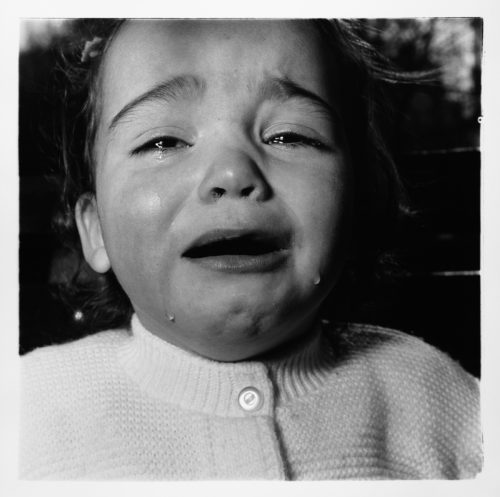
When I was little, it was impossible for me to hide any of my emotions; they quickly spread across my face, burrowed into my voice, and gushed out of every pore. When I got too excited, I would run around the room and talk very loud and even start to shake a bit. When I was angry, I made sure everyone heard me scream. And I cried a lot. I cried when I squished a bug, when I forgot a homework assignment, or when I thought some kid on the playground looked at me the wrong way. I couldn’t help it.
***
My parents sent me to a therapist when I was still in elementary school. Jill was supposed to help me learn to manage my anger and “control my feelings.” Once a week I went to her office in the basement of her little white house. Jill had me maintain a list of things that upset me each week. You have a lot of things on your list, she’d say. Let’s talk about that. I got upset too easily, apparently. Emotions must be economized, used sparingly. Next time you feel like yelling or crying, try putting those feeling into words instead. But I couldn’t explain why I cried sometimes when I was with my friends or when I watched cartoons, so I just stopped writing most things down. Soon enough, my parents decided that I didn’t need to see her anymore.
***
In fifth grade, I played for a travel soccer team. Our coach, the balding dad of a teammate, once called me a “baby” because I cried after he yelled at me. He made most of my teammates cry at some point during the season. In high school, my fencing coach told the girls’ team that we shouldn’t take his screaming during our bouts so personally. The boys understood that this was just his coaching technique.
***
Eventually I stopped talking about what upset me altogether. I used to tell my mom and sisters every detail of my day. They’re still the first ones I call when a professor compliments my work, or I see a cute dog, or I have a funny story from the night before; but now I tend to leave out the parts when I was sad. Somehow, if I never tell anyone about the bad things, I can almost convince myself that they didn’t happen, that those feelings aren’t real. I remember one afternoon last fall, when I was overcome by an intense feeling of loneliness that I just couldn’t describe. I considered calling my parents. But instead, I went back to my room, pulled the covers over my head, and listened to a Bob Dylan song on repeat for three hours.
***
My mom complains that my dad bottles everything up inside. Your father (it’s always “your father” when she’s angry about something) never wants to talk about anything. She always says whatever’s on her mind, or so she claims. I used to think I was like that, though maybe I’ve become more like my dad. She blames our Irish heritage, even though we’re not really that Irish.
***
My sister recently recommended that I watch a TV show she liked. I called her as soon as I finished watching it. Did you cry at the last episode? I did, she said. I didn’t. I honestly can’t remember the last time I really cried. I guess that’s a good thing. I cry whenever I laugh, but that’s different. Then the tears come streaming down my face easily, provoked by even the slightest giggle.
***
Sometimes I leave my noise-cancelling headphones on even when I’ve stopped my music. The sounds are all muffled, only half-noises and whispers; I can’t quite make anything out. Sometimes I feel that way even when I’m not wearing my headphones, like the whole world is dulled and fuzzy. I’ll be walking or talking with a group of people when I suddenly I’m separating from my body, a part of my mind floating above me, and I don’t feel anything. It only lasts for a few seconds.
***
I guess I grew out of the temper tantrums, the crying, the outbursts of emotions. Now that I’m not a little kid, I can’t show how I really feel; that would make me weak, too “emotional.” I hate that word and the way it’s used, as if it’s a bad thing to be human. But you can’t let people see that humanity all at once; you have to peel yourself away slowly. So instead I put my headphones on, mute the low frequencies around me to nothing but soft whiteness. I tell myself that it’s all just background noise.

Leave a Reply